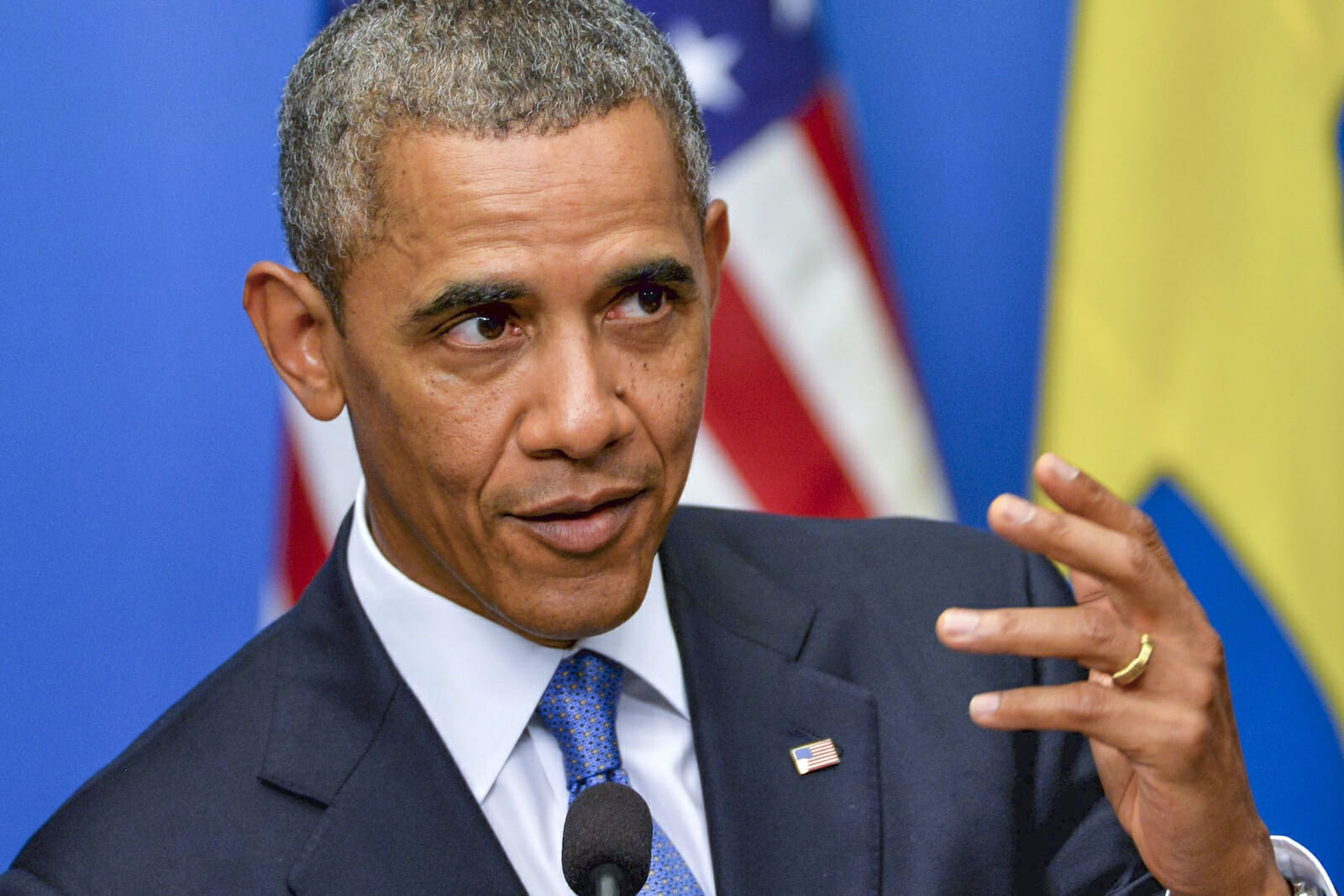
Punitive Strikes: ‘Russian Roulette’ with Unintended Consequences
Can it be assumed that Western governments are sincere that deterring the Syrian regime from using chemical weapons without overthrowing it is their main goal?
“France is ready to punish those who took the infamous decision to gas innocent people” in Syria, French President Francois Hollande asserted recently. Can anyone be certain that a “punitive” operation will not end up in an inter-state war which could engulf the larger region? A decision of this magnitude poses three major problems. The first is the legality of any “punitive” operation under international law. In the absence of a consensus in the United Nations Security Council, it seems that any military intervention will be undertaken most certainly without a UN mandate and be considered illegal under international law. It follows that the legal justification for intervention would more closely resemble the one used prior to the 2003 invasion of Iraq than the 2011 intervention in Libya.
For want of UN support, the Americans and French emphasize the legitimacy of such an intervention and try to form the widest possible international coalition. Since the German and British governments have already opted out of being part of any such military intervention, the Arab League’s principled support and the participation of Arab or Muslim countries appears now an essential condition to provide a legal basis, at least for outside consumption. Saudi Arabia and Qatar, which are providing military and financial support to the “rebels,” could participate in a coalition, as could Turkey. However, these countries are too deeply involved in the Syrian crisis to lend credibility to such a coalition and, in fact, their direct participation could further inflame the crisis.
Two legal arguments are being raised by those accusing Syria of using chemical weapons: first, Damascus’ violation of the 1925 Geneva Protocol which prohibits the use of chemical and biological weapons, which Syria is a signatory (as opposed to the 1993 Chemical Weapons Convention which it has not ratified); second, the “responsibility to protect” (R2P) principle adopted by the UN in 2005, and which justified the intervention in Libya in 2011.
Despite evidence (videos and testimonials, the scale of the attacks, acknowledgement by Damascus that it carried out major operations in the affected areas) demonstrating the use of chemical weapons in Syria, the admissibility of these arguments by the international community requires that it be demonstrated clearly that the Assad regime itself, not another actor, is actually responsible for the gassing of civilians on August 21, which, according to the rebels, left some 1,800 dead and nearly 10,000 injured. Russia, Syria’s main ally until now, is waiting for the final report to be released by UN inspectors. The Russian wait-and-see approach allows the Syrian regime to buy time and better organize its defense against any foreign intervention.
However, while UN investigators should be able to easily demonstrate that chemical weapons have been used in Syria. Médecins Sans Frontières (Doctors Without Borders) has already counted 355 people killed by chemical weapons although they have neither the means nor the mandate to find the perpetrators.
Still, countries ready to take action against Syria have a host of facts and arguments on their side. For instance, international law can stem from the UN General Assembly (Resolution 377 A called “Uniting for Peace”) in case of a lack of unanimity amongst the five permanent members of the Security Council. Also, Washington claims to have intercepted communications indicating that the Syrian authorities directed military preparations for a chemical weapon attack. Moreover, history has shown that the Syrian regime has repeatedly committed atrocities against its own people.
In February 1982, Rifaat al-Assad, the uncle of the current President and General Commander of the Syrian Army, ordered the shelling of a section of the town of Hama (known as the “Hama massacre”). Some 20,000 Syrian citizens were indiscriminately killed in the name of the fight against the Muslim Brotherhood. Today, some evidence suggests that Maher Assad, the younger brother of the president in control of the security forces – also known for his cruelty – is the main organizer of the August 21 crimes.
Unable to get the upper hand in the anti-Assad rebellion and loosen the grip that, day after day, chokes off the capital, the Assad regime, seemingly, played its last card on August 21 when Egypt was the focus of attention in the international media and many were effectively looking the other way.
The second problem is how to determine clear objectives for a possible future intervention. The potential coalition partners, who plan to launch cruise missiles against Syria, do not share the same goals, and the goals being talked about are not necessarily the most popular among coalition participants. Behind the “punishment” for the use of chemical weapons and “warning shots” wrapped up in the controversial concept of “humanitarian intervention” lie other, and not necessarily benevolent, intentions. Saudi Arabia and Qatar count on massive air strikes to speed up the Assad regime’s downfall and give their respective Islamic affiliated groups the opportunity to preside over the destiny of the country.
The United States lacks a credible alternative within moderate opposition groups and does not wish to overthrow the Assad regime. Ultimately for the Obama administration, any intervention will convince Assad and his supporters that the only way out is through a peaceful transfer of power. In such a scenario, Assad’s and Russia’s “vital” interests would be safeguarded without the collapse of the Syrian state altogether.
If this latter scenario, tested with relative success in Yemen, is considered out of reach for now, serious air strikes against military and political targets could contribute to its realization. Such a scenario was precisely at the heart of the talks between John Kerry, the U.S. Secretary of State, and Sergey Lavrov, the Russian Foreign minister, in recent months. Basically, Moscow and Washington share the same approach, provided that their respective interests are fully considered with regards to Syria, that is, preservation of the naval base in the Mediterranean and defense of a reliable ally – and buyer of Russian military hardware – in the Middle East for the Russians; fight against Al Qaeda and a lasting peace between Israel and Syria for the Americans. But, here again, appearances are deceptive, as the Russo-American confrontation, not at all reminiscent of the Cold War period, is first and foremost pure posturing. Evidence of this is provided, for example, by the Kremlin’s extremely measured reaction to the threat of Western military strikes against Syria.
For Washington, punishing Syria is a strategic imperative, especially if it wants to remain credible in the region, particularly in its standoff with Iran, the fiasco in Iraq and the apparent debacle in Afghanistan.
The third major problem is the military and political consequences of any intervention by a coalition force. Simple ideas are of no utility in the Middle East and no one is able to guarantee that a “punitive” operation will not result in a wider and even more destructive conflict. The international community is being promised, in line with international law, “targeted and proportionate” strikes. But which Syrian sites will be actually targeted and destroyed, and will this make enough of a difference to bring about the desired outcomes?
Inefficient “surgical” strikes may actually strengthen the Assad regime, which remains the de facto master on the field and in the propaganda war and keeps coalition forces permanently off the Syrian coast. On the ground, preparations are underway to reposition Syrian weapons and stockpiles closer to residential areas. Stocks of chemical weapons could also be transferred to conventional weapon sites which could be potentially targeted by the coalition. It is already easy to imagine the extent of the local human disaster and the impact on the international opinion should these sites be bombed in the course of a foreign intervention.
Conversely, if strikes were to be directly carried out against the Assad clan itself, are the United States and its allies sure he would not be tempted to adopt the worst possible line of defense to achieve his ends, conducting a scorched earth policy on his own soil and reawakening the specter of war in Lebanon? As to the possibility of the destruction of his regime, which is still in the cards in case of a military operation, such a scenario would plunge the country into chaos and inevitably play into the hands of Sunni jihadist groups affiliated with al-Qaeda, such as al Jabhat al-Nusra and others.
To avoid a conflagration across the region, something many fear will happen, the Syrian regime’s forces of repression and military means must be destroyed. However, in the absence of any real means of defense and repression, the regime itself will collapse. The resulting power vacuum would lead to a prolonged battle between militias, ethnic and religious communities. Such a outcome has the potential to affect neighboring countries as well. Even if American drone strikes were to be “measured” and of short duration, without much consequence for the Syrian regime and a potential regional conflagration, the room for maneuver for Washington and its potential allies is extremely narrow. Weakening the Assad regime without breaking it seems the most reasonable goal for the United States, but it is one that is almost impossible to achieve.
A major doubt surrounding any hypothetical military intervention is the attitude of Damascus’ closest allies. Would Russia, Iran, and Hezbollah, all of which wish to ensure the survival of the Assad regime, be willing to provide continued support to Assad? In this vast con game played out for the benefit of superpowers and their regional allies, the military operation in preparation will serve as a test of the readiness of all parties to show how far they are willing to go in defending their own vested interests. For instance, Iran’s reaction to the possibility of Western intervention was extremely cautious, speaking of “serious consequences for the region’s stability.”
Obviously, the Iranian regime is mainly concerned with its own survival, with the U.S. Fifth Fleet in Bahrain constantly on high alert. But the fundamental question is whether the current big fuzz stirred up by some Western governments is merely a bluff designed to force the parties in the conflict to the negotiation table. Will the U.S. Congress approval of a military response to alleged chemical weapons use by Syria change Assad’s behavior?
